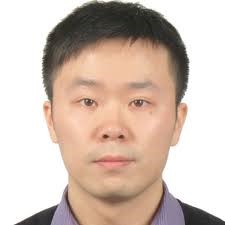Magnetic Proximity Effects at Magnetic Insulator/Low Dimensional Material Interfaces

Speaker: Prof. Lei Bi
Affiliation: University of Electronic Science and Technology of China (UESTC)
Abstract: Magnetic proximity effect (MPE) describes spin polarization phenomena in nonmagnetic materials when they are placed in close proximity to a ferromagnetic material. Recently, magnetic proximity effects have been observed at the interface between magnetic insulator thin films and low dimensional materials, such as Pt/YIG, Graphene/YIG, TI(topological insulator)/YIG and TMD(Transition metal dichalcogenide)/EuS, etc., which are considered to be promising for spintronics applications. However, the physical mechanism of MPE at the interfaces, as well as the way to control MPE remains unclear. In this report, I will present our recent progress in a theoretical and experimental study on MPE at magnetic insulator/low dimensional material interfaces. By combining first principle calculations using density functional theory and anomalous Hall effect (AHE) characterizations, we clarified the structural origin of MPE at Pt/YIG interface. We further experimentally controlled this MPE by interface defect design. In a different effort, we also investigated the MPE in Van der Waals heterojunctions such as MoS2/EuS, TI/YIG and MoS2/YIG. Such interfaces are free of element intermixing and dangling bonds, providing a platform for accurate material property control. Strong spin polarizations in the nonmagnetic materials were observed theoretically and experimentally, demonstrating a promising potential of using MPE to develop novel low dimensional magnetic materials.
Biography: Dr. Lei Bi is a professor in the Department of Electronic Science and Engineering of University of Electronic Science and Technology of China (UESTC). He received the BS and the MS degree in 2004 and 2006 respectively in Tsinghua University, China, both in Materials Science and Engineering. He received the Ph. D. degree at MIT in 2011, supervised by Prof. Caroline Ross working on magneto-optical oxide thin films. He worked in Micron Technology from 2011 to 2013 as an emerging memory engineer, and then he joined UESTC in 2013. Dr. Bi’s research interest is in magnetic oxide thin films for nonreciprocal photonics and spintronic device applications, and ferroelectric HfO2 films for memory and nonlinear photonic device applications. He is currently a member of IEEE, MRS, and OSA.
For more information, contact Prof. Kang Wang (wang@ee.ucla.edu)
Date/Time:
Date(s) - May 10, 2019
4:00 pm - 5:00 pm
Location:
E-IV Faraday Room #67-124
420 Westwood Plaza - 6th Flr., Los Angeles CA 90095
